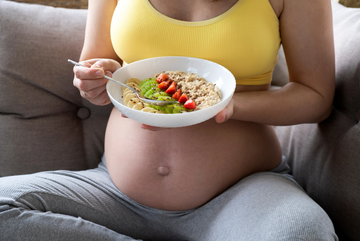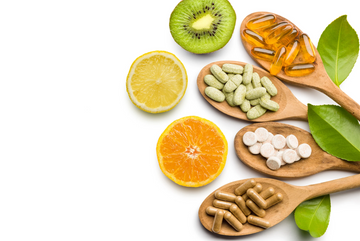Breastfeeding and Allergies: How Maternal Diet Can Make a Difference
Breastfeeding is a powerful way to nourish and protect your baby, but for some infants, allergies can make feeding more challenging. While breast milk naturally supports immune health, a mother’s diet can influence certain allergens that pass through milk. Understanding how maternal nutrition affects allergies can help you make informed choices and feel confident in supporting your baby’s well-being.
Understanding Allergies in Breastfed Babies
Some babies may show signs of food sensitivities or allergies, such as eczema, digestive discomfort, or fussiness. The most common allergens that can pass through breast milk include:
- Cow’s milk protein – Found in dairy products, this can trigger reactions in sensitive infants.
- Soy, eggs, and nuts – Some babies may react to proteins from these foods.
- Wheat and seafood – Less common but still potential allergens.
How Maternal Diet Influences Breast Milk
While breast milk is naturally designed to support infant health, certain food proteins can pass through and affect sensitive babies. However, eliminating foods is not always necessary—many babies tolerate a wide range of maternal diets. If allergies are suspected, adjusting your diet can help manage symptoms.
Key dietary considerations:
- Dairy-Free Approach – If your baby has a cow’s milk protein allergy, removing dairy from your diet may help reduce symptoms.
- Balanced Nutrition – Ensuring you get enough calcium, vitamin D, and protein from alternative sources like leafy greens, fortified plant-based milk, and lean proteins.
- Gradual Elimination – If you suspect a food sensitivity, removing one food at a time and monitoring changes can help pinpoint triggers.
Introducing Allergens Early
Recent research suggests that early introduction of allergenic foods (like peanuts and eggs) may help prevent allergies later in life. While breastfeeding alone does not prevent allergies, combining it with early exposure to allergenic foods may support tolerance development.
Sources:
Cow’s milk protein allergy (CMPA); what to eat while ... (n.d.). https://www.
IBCLC, A. B. P. P.-G. (2025a, May 21). Elimination diet. Breastfeeding Support. https://breastfeeding.support/
Society, C. P. (n.d.). Dietary exposures and allergy prevention in high-risk infants. Canadian Paediatric Society. https://cps.ca/en/documents/














